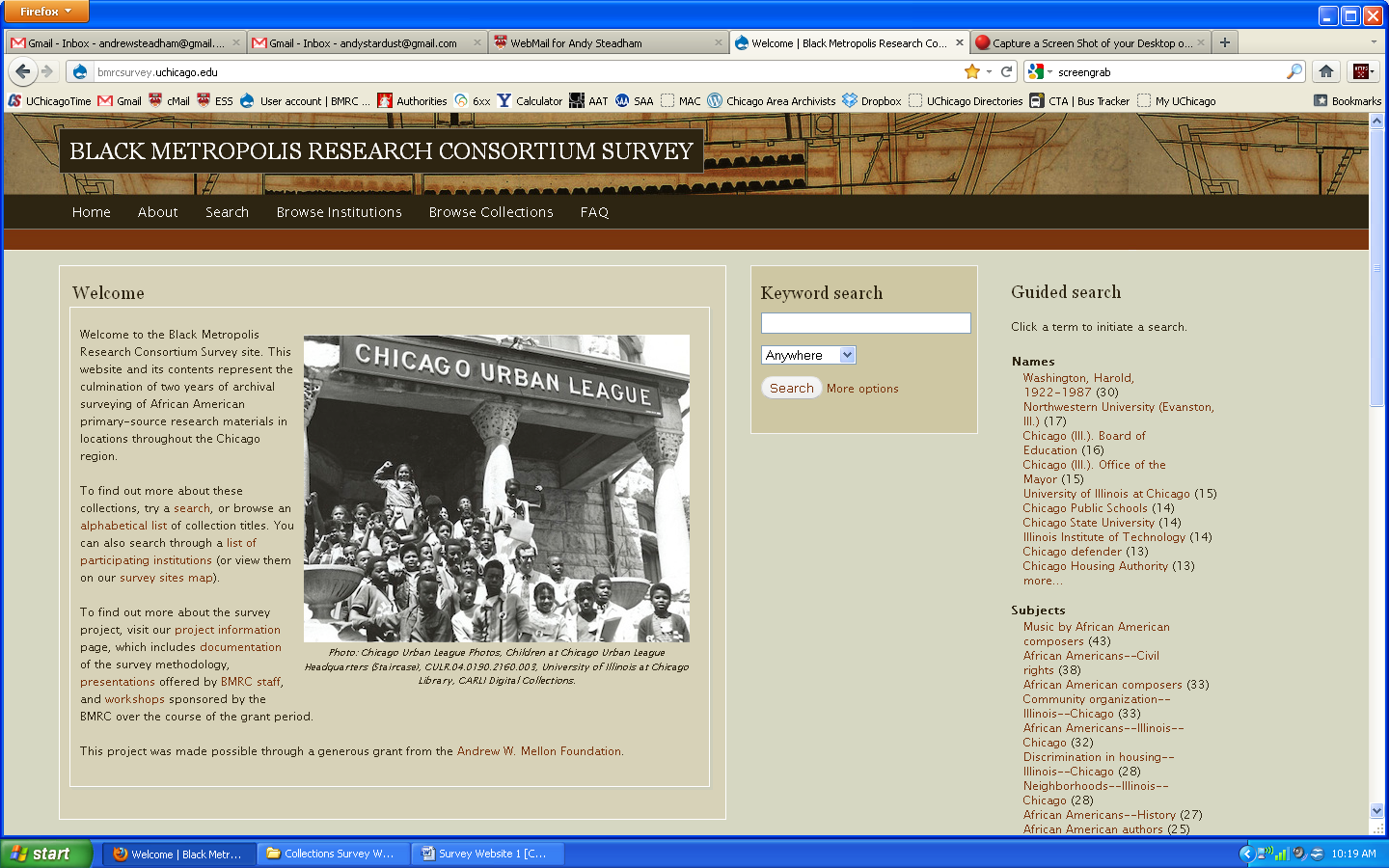Survey Initiative
During its first year, the BMRC conducted initial studies of its member institutions’ holdings of Black historical collections as well as staffing, space, training and conversation needs that contributed to backlogs in processing, or organizing Black historical collections. These initial studies laid the groundwork for the BMRC’s first major collections initiative. In December 2008, the BMRC was awarded a multiyear grant from the Andrew W. Mellon Foundation to conduct a broader collections survey. The BMRC Survey Initiative ran from January 2009 through December 2011.
The goals of the Survey Initiative were to determine where Black historical collections existed across the city, the subjects represented within those collections, and any collection preservation concerns. In addition to its member institutions, the BMRC surveyed “Second- Space” organizations—smaller, community-based organizations and individual holders of collections. In assessing Black historical collections, the Survey Initiative helped provide archival institutions with important data about their collections that could inform individual and collaborative grant proposals to address collection needs. The Survey Initiative also provided preliminary descriptions for all surveyed collections which created records of their existence and contents in an online searchable database.
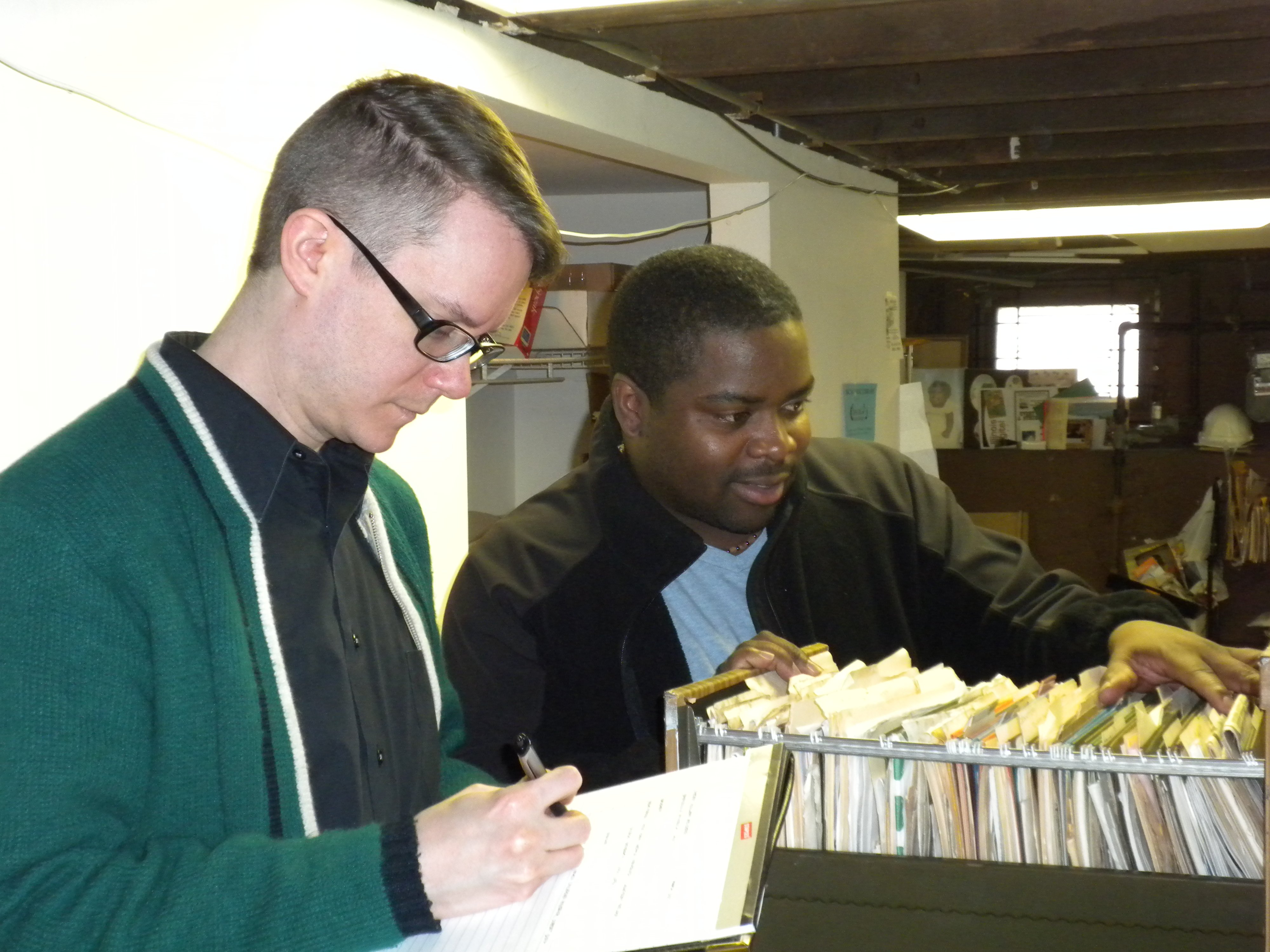
Courtesy of the Black Metropolis Research Consortium
The Survey Initiative required additional staffing for the BMRC beyond inaugural Executive Director, Vera Davis and Consortium Archivist, Tamar Evangelestia-Doughtery. Bergis Jules was hired as Project Director, Lisa Calahan as Lead Survey Archivist and Lauren Kalal and Andy Steadham as Survey Archivists.
Depending on the size and organization of an institution’s archive, project archivists spent anywhere from several hours to multiple days surveying relevant collections. Here, Steadham and Jules examine materials from the Bronzeville Historical Society. The Bronzeville Historical Society was founded in 1999 by Sherry Williams to preserve and protect African American history and culture of Chicago.

Courtesy of the Black Metropolis Research Consortium
Project archivists surveyed collections using a ranking system that evaluated a number of criteria, including the condition of the material, the quality of its housing, physical access to the collection, its local Chicago value and African American research value.
Here, archivist Lisa Calahan examines a photo album in a collection from Shorefront Legacy Center. Shorefront was founded in 1995 by Dino Robinson to collect materials that represent and document the contributions, lives and history of Blacks on the Chicago North Shore.
Courtesy of the Black Metropolis Research Consortium
Increasing access to collections and materials that document African American history and culture was a key objective of the BMRC and major outcome of the Survey Initiative. The survey project’s website provided basic descriptions of each collection surveyed, whether or not the collection was fully processed and available to researchers. Of the Black historical collections surveyed, project archivists noted strengths in collections related to housing, segregation, politics, jazz, civil rights and social services.
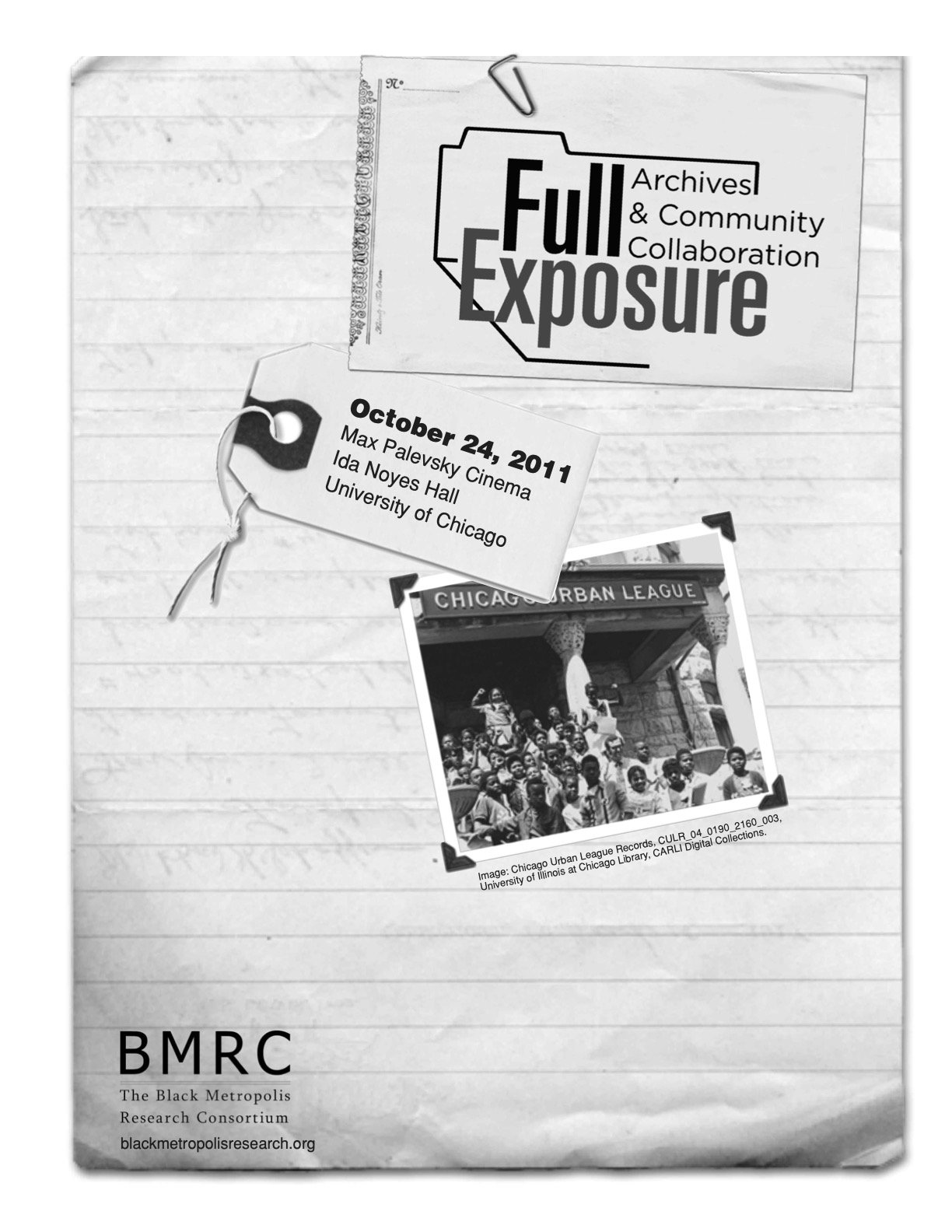
Courtesy of the Black Metropolis Research Consortium
In October 2011, near the end of the Survey Initiative, the BMRC held a one-day conference, “Full Exposure: Archives and Community Collaboration” to discuss insights gained from the project. “Full Exposure” featured sessions on the benefits of the project to researchers and archival institutions, strategies for preserving collections and increasing public access to African American collections.
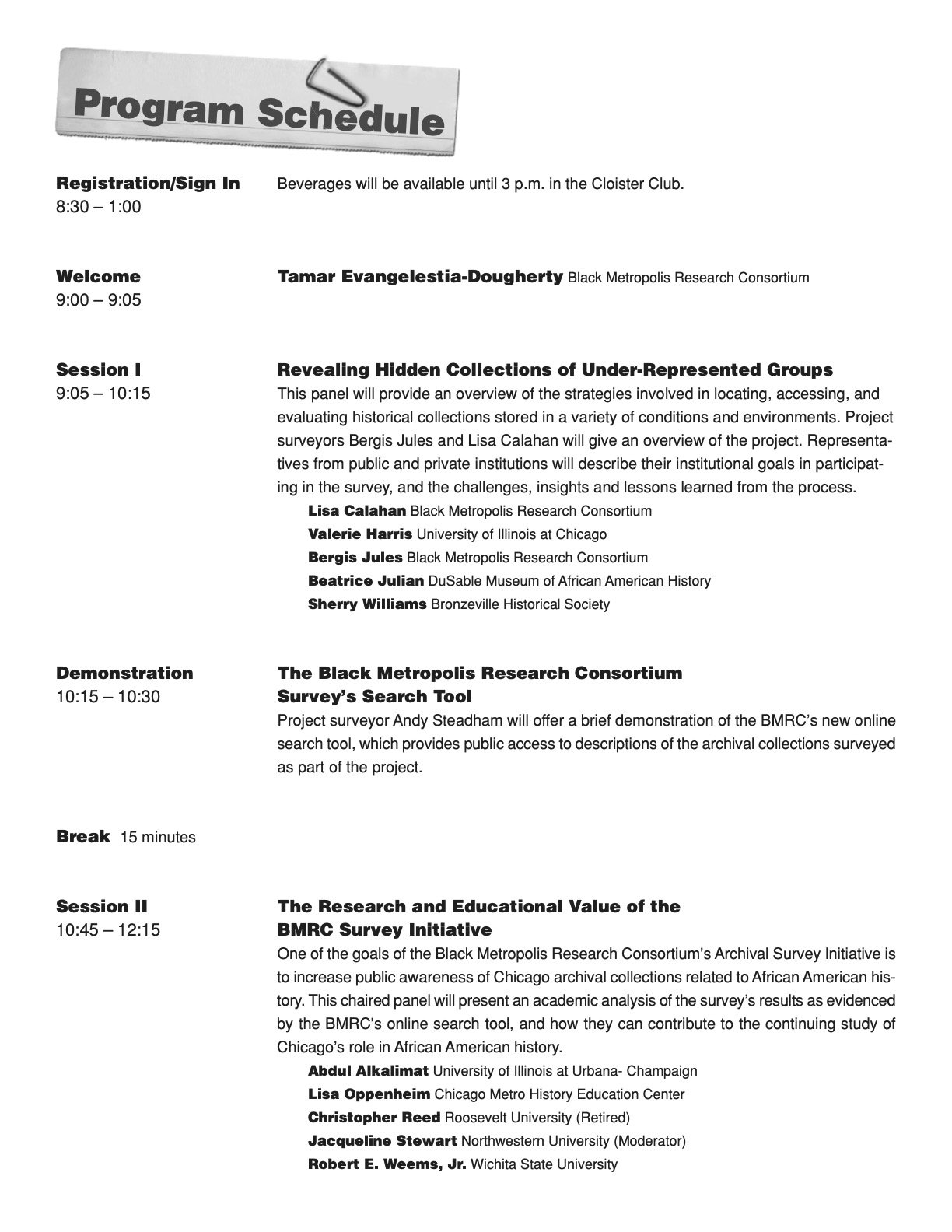
Courtesy of the Black Metropolis Research Consortium
Dr. Tukufu Zuberi, the Lasry Family Professor of Race Relations, and Professor of Sociology and Africana Studies at the University of Pennsylvania, gave the keynote address. Dr. Zuberi, a graduate alum of the University of Chicago, is also a documentary film maker and was a host on the PBS television series, History Detectives Special Investigations.
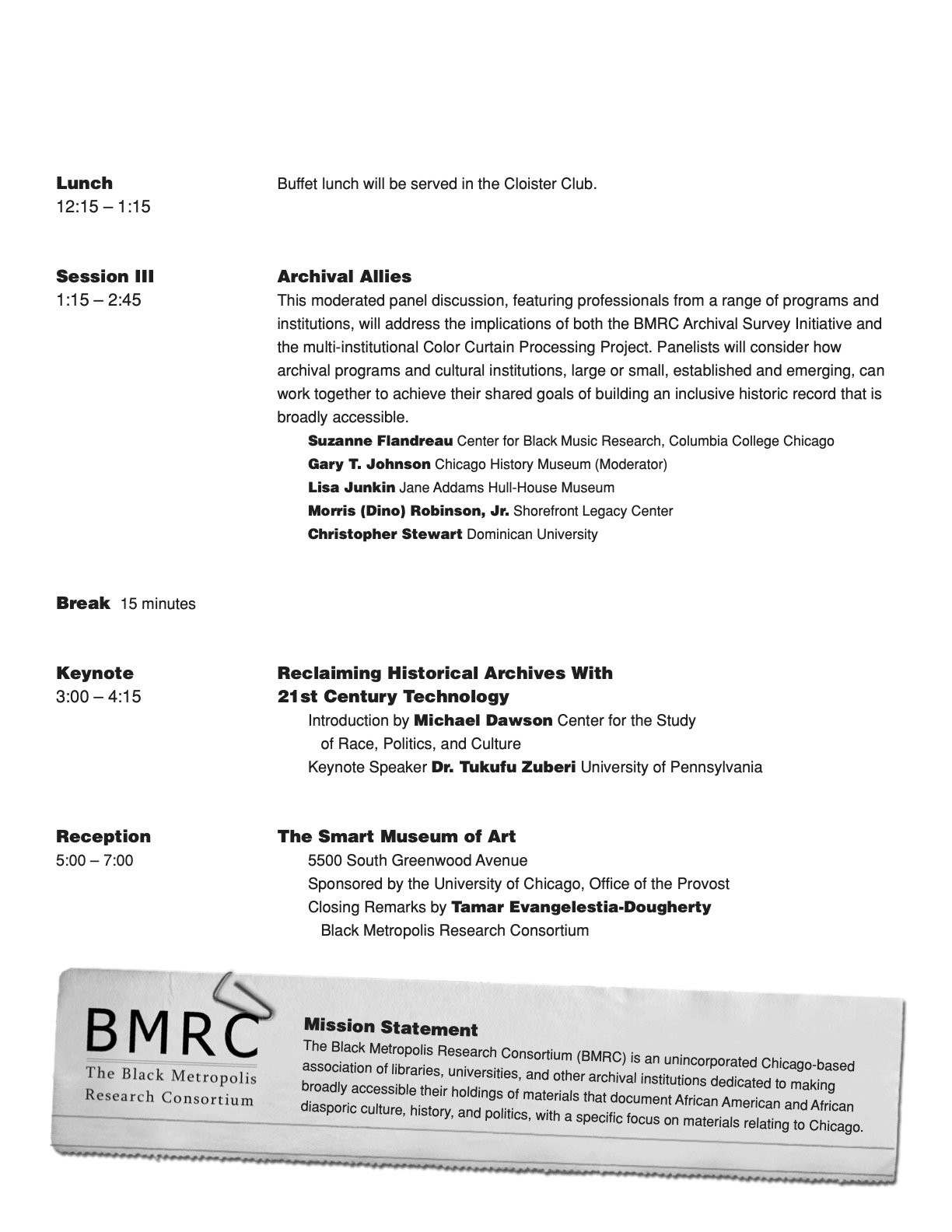
Courtesy of the Black Metropolis Research Consortium
The conference provided an opportunity for many of the same scholars, archivists and librarians who helped found the BMRC to convene once again. In addition to the conference panels, the BMRC hosted off-site workshops on the history and stewardship of Black historical collections.
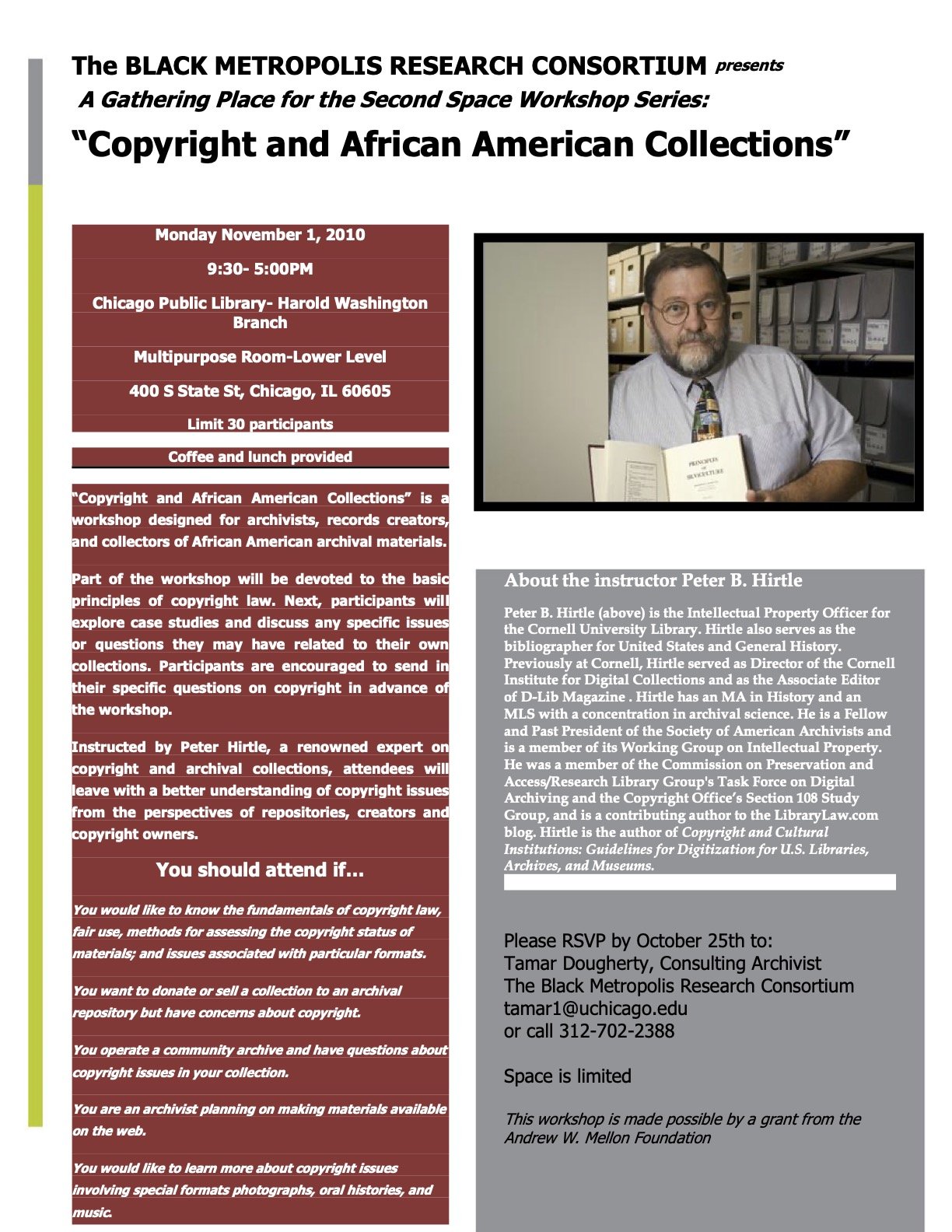
Courtesy of the Black Metropolis Research Consortium
As part of the Survey Initiative, the BMRC developed a workshop series, “A Gathering Place for Second Space” catered to smaller, community-based organizations and individual holders of collections. In addition to the copyright workshop advertised in the above flyer, the series included workshops on Archivist Toolkit, the More Product, Less Process method of processing archival collections, and the preservation of African American collections.
